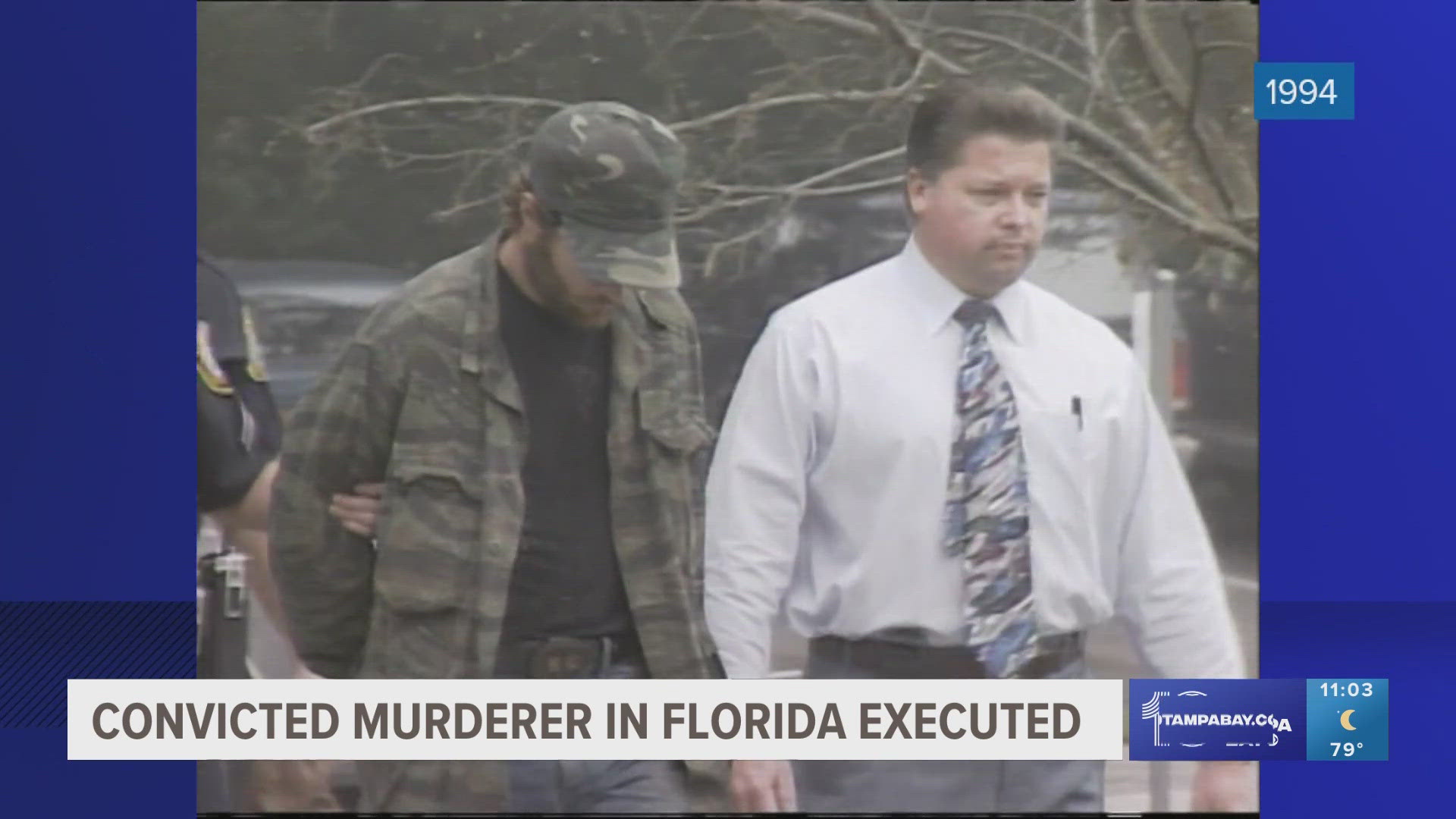TALLAHASSEE, Fla. — A Florida man convicted of killing a college freshman and raping the murder victim’s older sister while the siblings camped in a national forest 30 years ago was executed Thursday.
Loran Cole, 57, received a lethal injection and was pronounced dead at 6:15 p.m. at Florida State Prison for the 1994 killing of an 18-year-old student. Cole also was serving two life sentences for rape.
Cole did not have a last statement. “No sir,” he said when asked if he had some final words.
After the procedure began about 6 p.m. Cole briefly looked up at a witness in the front row. After three minutes, he began taking deep breaths, his cheeks puffing out. For a brief moment, his entire body trembled. Five minutes into the procedure, the warden shook him and shouted his name. Cole then appeared to stop breathing and then was declared dead.
Cole and a friend, William Paul, befriended the two college students in the Ocala National Forest, court records showed. After talking around a fire, the men offered to take the siblings to see a pond. While away from the campsite, Cole and Paul jumped the victims and robbed them, according to the records.
The brother, 18, who was a student at Florida State University, was beaten and had his throat slit and left in the forest. His sister, then a 21-year-old senior at Eckerd College, was taken back to the campsite, where Cole tied her up and raped her, according to the record.
The woman was left tied to a tree overnight and raped again the next day. She eventually managed to free herself and flagged down a driver for help. Police found her brother’s body lying face down on the ground, according to court records.
Paul and Cole were both convicted of first-degree murder. Paul was sentenced to life in prison.
Although they did not attend the execution, the parents of the victims had a statement read afterward by corrections officials. They wrote about how the murder of their son and the attack on their daughter had shattered their lives. But they said their daughter had gone on to become a wife, teacher and professor.
“Though invisible to others, our daughter bears internal scars that will never go away. She battled years of fear, pain and sorrow,” the statement said. “She is our hero.”
“We are void of feelings and empathy for Mr. Cole. He placed himself into this arena,” it added. “He does not deserve mercy.”
The Associated Press does not generally identify victims of sexual assault unless they come forward publicly.
Gov. Ron DeSantis signed the death warrant for Cole last month.
The execution was the first in Florida since Michael Zack was put to death last October for the 1996 killing of Ravonne Smith.
Department of Corrections officials described Cole as “compliant” in the hours before his execution and said he had two visitors, including his son.
The U.S. Supreme Court denied Cole’s final appeal earlier Thursday.
His lawyers had raised several points in seeking a stay of execution, including the fact that Cole was an inmate at a state-run reform school where he and other boys were beaten and raped. The state has since apologized for the abuse and this year passed a law authorizing reparations for inmates at the now-shuttered reform school. The lawyers also argued Cole shouldn’t be executed because he was mentally ill and had brain damage and Parkinson’s disease.
The execution was the first in Florida since Michael Zack was put to death last October for the 1996 killing of Ravonne Smith.
In Pinellas County, some people held a vigil minutes before Cole's execution. Others also demonstrated opposition in Tallahassee.
"We're here saying that's wrong. The death penalty doesn't work," John Stewart with the Floridians for Alternatives to the Death Penalty said. "There's no reason that he should be executed, because of what the state of Florida did to him, he can't be with us, he can't be among us, but he doesn't have to die."
Mark Elliott, a former executive director for FADP, echoed Cole's upbringing at Dozier.
"We have ways to keep people that are a threat to society away from the public and life without parole is a death sentence," Elliott said.

